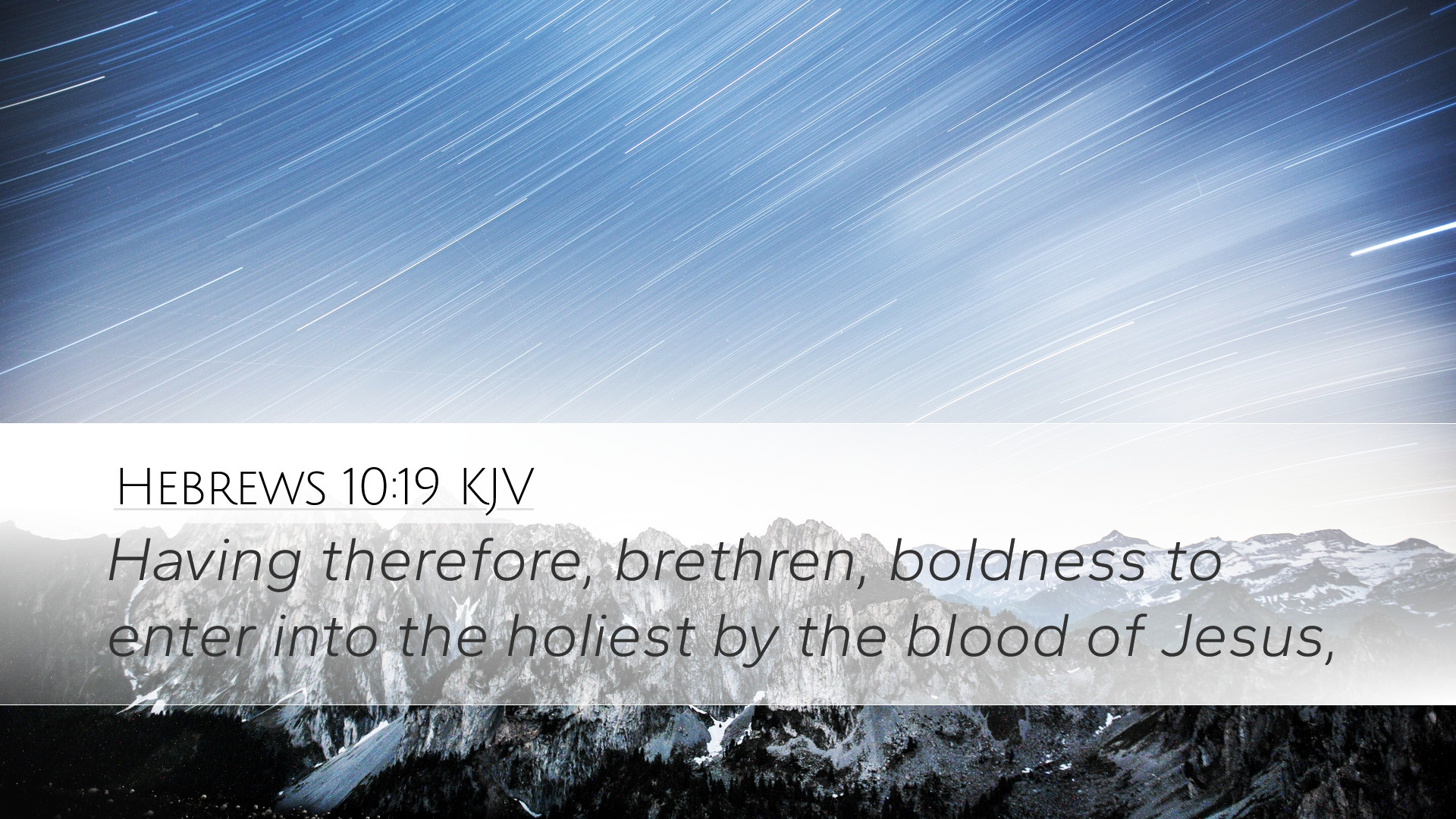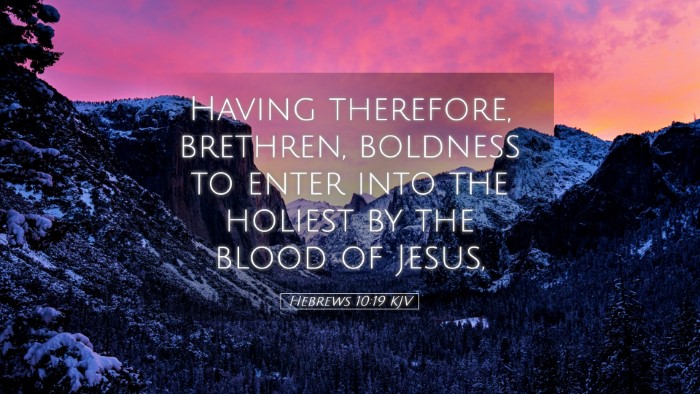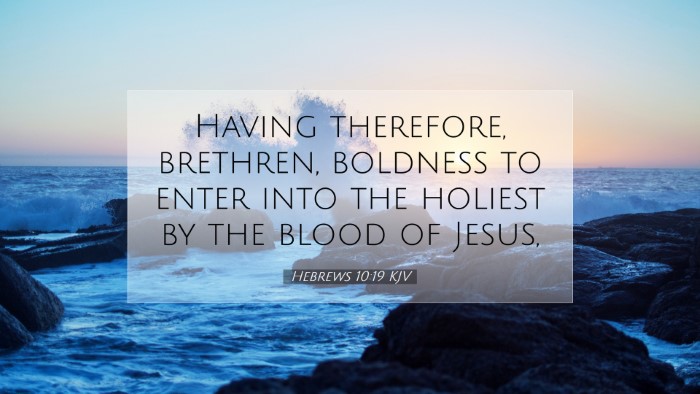Commentary on Hebrews 10:19
Verse Context: "Having therefore, brethren, boldness to enter into the holiest by the blood of Jesus."
Introduction
This passage from Hebrews 10:19 serves as a powerful declaration about the Christian's access to God through Jesus Christ. It encapsulates the core of Christian theology concerning the sacrifice of Christ and its implications for believers. In this commentary, we will delve into insights from various public domain commentaries, shedding light on the historical context, theological significance, and practical applications of this verse.
Exegesis of Hebrews 10:19
Hebrews 10:19 opens with a declaration of “boldness.” The Greek term used here (παρρησία - parrhesia) conveys a sense of confidence and freedom in speaking. This boldness is contrasted with the former access to God through the Old Testament sacrificial system, which was limited and constrained.
The Holiest
The term "holiest" refers to the "Holy of Holies," the inner sanctuary of the temple where God's presence dwelled. This space was accessible only by the high priest once a year—and only after the proper sacrifices had been made. The author of Hebrews emphasizes that through Christ, this access is no longer restricted.
The Role of the Blood of Jesus
The phrase “by the blood of Jesus” underscores the sacrificial nature of Christ's atonement. The blood signifies the ultimate sacrifice that Christ made, fulfilling the requirements of the Law and offering a new covenant (Hebrews 9:12). As Matthew Henry elaborates, this provides believers not just with an opportunity for communion with God, but a boldness stemming from grace, enabling them to draw near without fear of condemnation.
Theological Implications
The implications of this verse are profound for Christian theology:
- Access to God: Believers are granted direct access to God's presence. There is no longer a veil that separates humanity from the divine.
- The New Covenant: The blood of Jesus signifies the establishment of a new covenant—a transformative relationship between God and believers that is not based on the Law but on grace.
- Boldness in Faith: The boldness referred to in this verse encourages believers to approach God confidently, reaffirming their identity in Christ.
Historical Context
The book of Hebrews was written during a time when early Christians faced persecution and pressures to revert to Judaism. The author’s assertion of boldness assures believers that their faith in Christ is the true and final revelation of God and encourages them in their struggles.
Insights from Commentators
Matthew Henry
Matthew Henry comments that the encouragement provided to believers signals a significant transition in the approach to worship. He emphasizes that the blood of Jesus, unlike the sacrifices of the Old Covenant, is effectual and eternal, allowing believers to enter into a new dimension of fellowship with God.
Albert Barnes
Albert Barnes notes that this verse should instill courage in believers. The invitation to enter the “holiest” signifies that every believer has the right and ability to approach God. Barnes articulates that this boldness is not merely an emotional state but a grounded confidence based on the sacrificial work of Christ.
Adam Clarke
Adam Clarke emphasizes the transformative nature of Christ’s sacrifice, describing how it has removed the barriers that once existed between people and God. Clarke insists that believers should take full advantage of this privilege, recognizing the sanctity and honor of their position as those redeemed by the blood of Christ.
Practical Applications
For pastors, students, theologians, and biblical scholars, this verse invites a deeper reflection on one's personal faith and communal worship practices:
- Encouragement to Worship: Pastors can encourage their congregations to approach God with a renewed sense of boldness in prayer and worship, understanding the fullness of access granted by Christ.
- Teaching on Atonement: Students and scholars can delve into the significance of atonement, exploring the implications of the New Covenant as it relates to historical and contemporary practices of faith.
- Community and Brotherhood: This passage emphasizes the importance of communal faith. Believers are not just individuals but part of a larger body, called to support one another in approaching God together.
Conclusion
Hebrews 10:19 invites believers into a rich understanding of their standing before God—one marked by boldness, freedom, and grace. This verse serves as a reminder of the transformative power of Christ's blood, opening the way for a personal and communal relationship with the Almighty.


